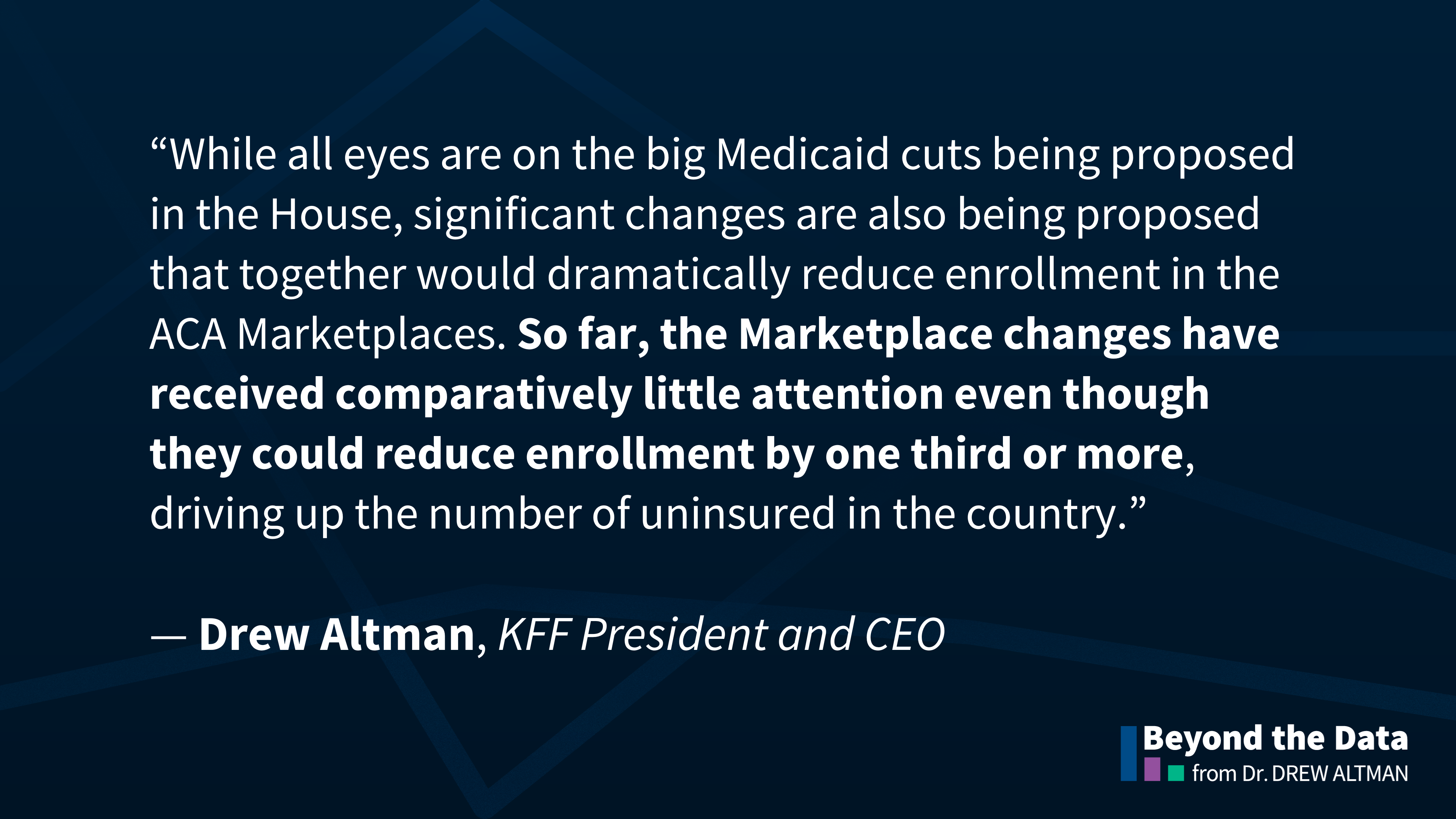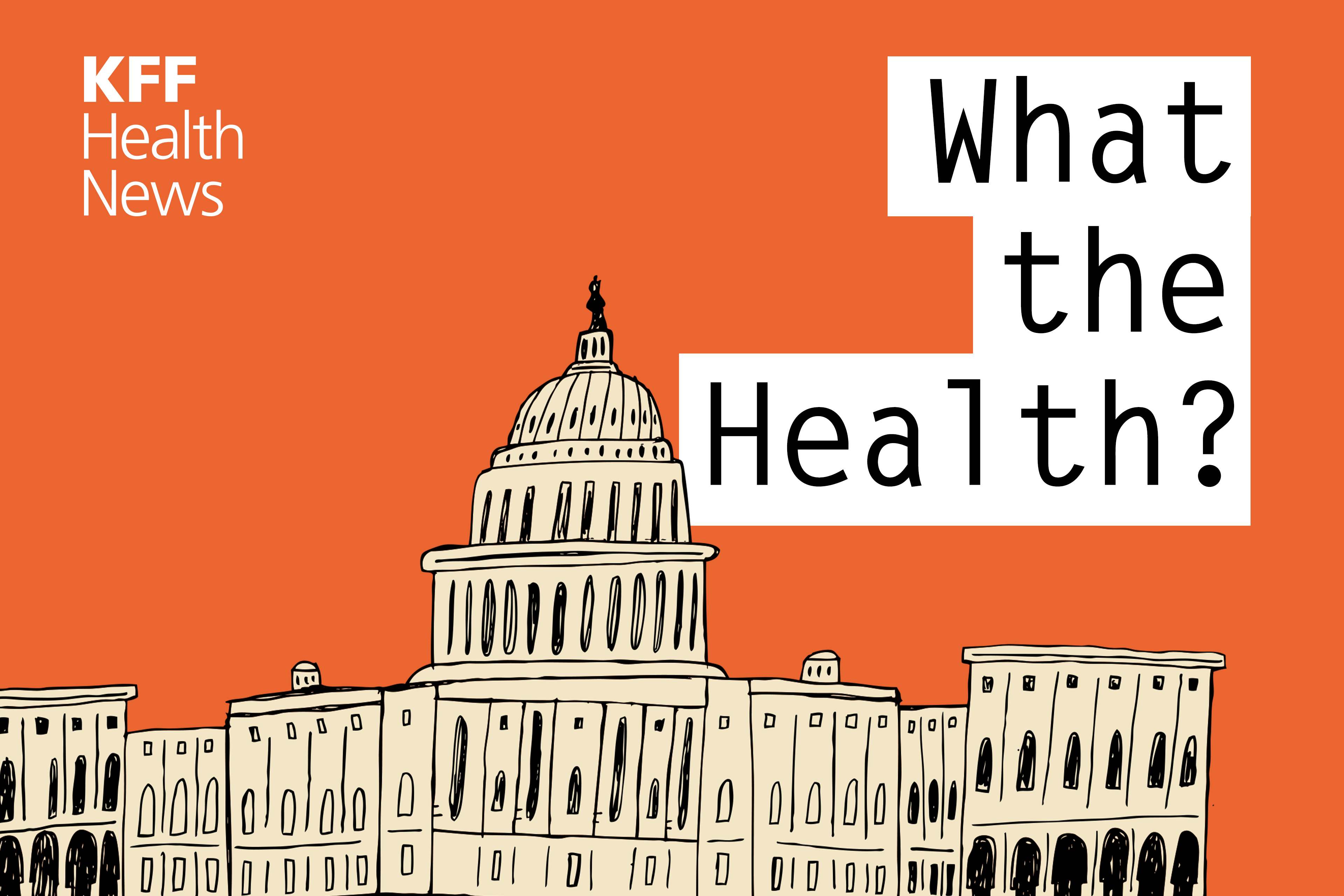National ACA Marketplace Signups Dipped a Modest 3.7 Percent This Year
Overall ACA marketplace signups for 2018 dropped by 3.7 percent compared to last year’s enrollment period, a new analysis from the Kaiser Family Foundation finds.
The independent source for health policy research, polling, and news.
KFF’s policy research provides facts and analysis on a wide range of policy issues and public programs.
KFF designs, conducts and analyzes original public opinion and survey research on Americans’ attitudes, knowledge, and experiences with the health care system to help amplify the public’s voice in major national debates.
KFF Health News is a national newsroom that produces in-depth journalism about health issues and is one of the organization’s core operating programs.
This analysis of insurers’ initial rate filings for Affordable Care Act Marketplace plans in all 50 states and DC finds the median proposed increase for 2026 is 18%, more than double last year’s proposed increase. The analysis also shows proposed rate changes by state and insurer.

President and CEO Drew Altman shows how proposals contained in the House reconciliation bill could result in a one-third reduction in ACA Marketplace enrollment. “While all eyes are on the big Medicaid cuts being proposed in the House,” he writes, “significant changes are also being proposed that together would dramatically reduce enrollment in the ACA Marketplaces.”

Choose which emails are best for you.
Sign up here
Overall ACA marketplace signups for 2018 dropped by 3.7 percent compared to last year’s enrollment period, a new analysis from the Kaiser Family Foundation finds.
Only One in Three Know the Tax Reform Law Repeals the ACA’s Unpopular Individual Mandate Health care and the economy and jobs top voters’ list as “the most important issue” for Congressional candidates to talk about ahead of November’s midterm elections, but the lineup shifts among voters in states and districts with competitive elections, the…
On Thursday, February 23, the Kaiser Family Foundation will host a web briefing for journalists to explain how block grant and per capita cap spending proposals for Medicaid would work and what the possible implications are.
With the 2018 midterm elections still about ten months away, the January Kaiser Health Tracking poll examines what issues voters most want 2018 midterm candidates to talk about during their upcoming campaigns. Health care is at the top of a group of issues but health care is less important to Republicans and among voters in battleground states. While Congress is currently debating a budget to keep the government funded beyond February 8, 2018, the poll also examines the public’s priorities for President Trump and Congress and measures support for reducing federal funding for government programs.
This data note provides the most up to date nationally representative estimates of insurance coverage changes among self-identified lesbian, gay and bisexual adults (LGB) under the ACA.
Medicaid provides health insurance coverage for about one in five Americans and is the largest payer for long-term care services in the community and nursing homes. Efforts in 2017 to repeal and replace the Affordable Care Act (ACA) and cap federal financing for Medicaid were unsuccessful but help to set the stage for 2018. As 2018 begins, there is a focus on administrative actions using Medicaid Section 1115 demonstration waivers, state actions on Medicaid expansion, and funding for the Children’s Health Insurance Program (CHIP) and other federal health care priorities. Medicaid in 2018 is also likely to continue to be part of both federal and state budget deliberations. Pressures to control the federal deficit may reignite efforts to reduce or cap federal Medicaid spending. In addition, Governors will soon release proposed budgets for state FY 2019 that will need to account for uncertainty around CHIP and Medicaid, changes in the economy and the effects of the recent tax legislation as well as funding for rising prescription drugs and initiatives to combat the opioid epidemic. This brief examines these issues.
In a Washington Post op-ed, “The Trump administration’s hidden attacks on the Affordable Care Act,” Larry Levitt discusses the latest proposed regulations by the Trump administration to expand association health plans: changes that could wound the ACA insurance marketplace, but are unlikely to make it collapse.
This fact sheet highlights the states and situations where consumers can still sign up for a 2018 marketplace plan even though the Dec. 15 deadline for enrolling in healthcare.gov states has passed. It includes consumers in states who have extended open enrollment periods, people whose 2017 plan was discontinued, and people who live in or moved from counties affected by this year's major hurricanes.
This interactive map shows the status of all Section 1332 waivers requested by states. The Affordable Care Act (ACA) allows states to apply for innovation waivers to alter key ACA requirements in the individual and small group insurance markets and can be used to shore up fragile insurance markets, address unique state insurance market issues, or experiment with alternative models of providing coverage to state residents.
In this Axios column, Drew Altman discusses how public opinion seems to flip on eliminating the individual mandate as part of the tax legislation, from for it to against, when the public considers the consequences.
© 2025 KFF



